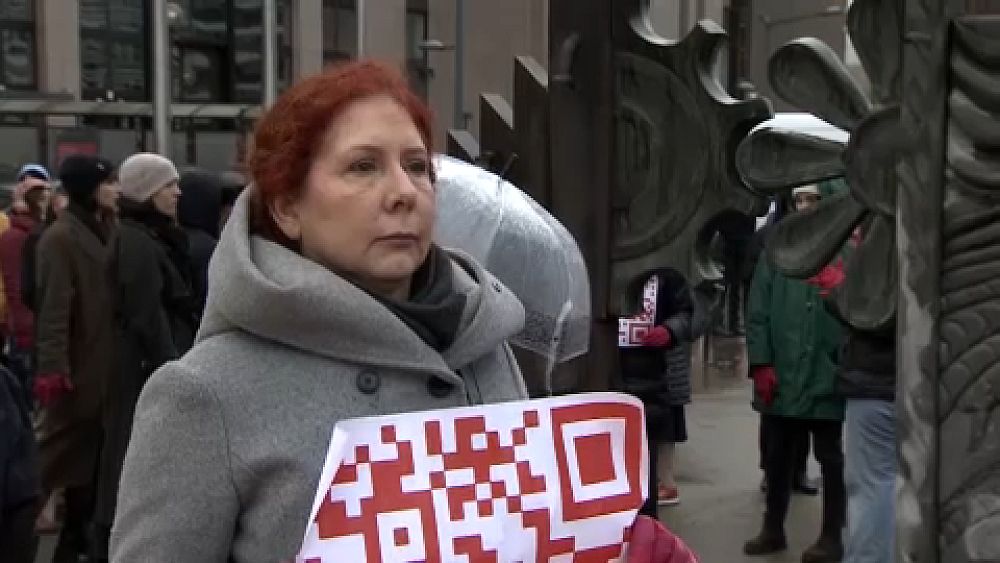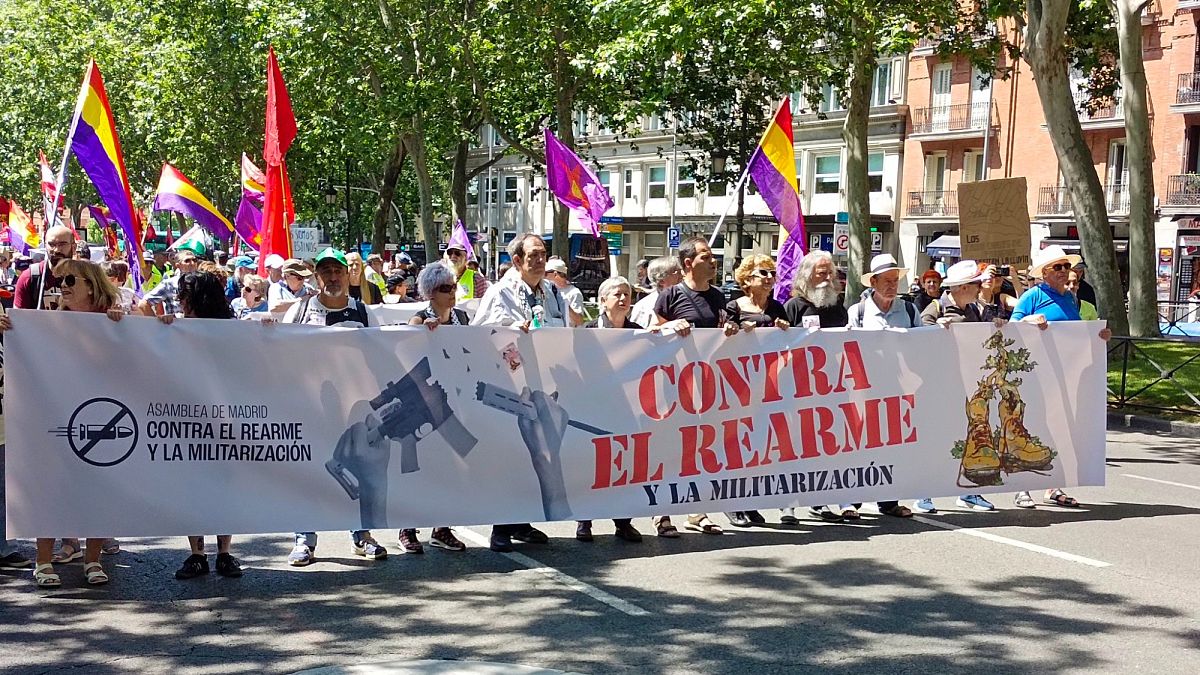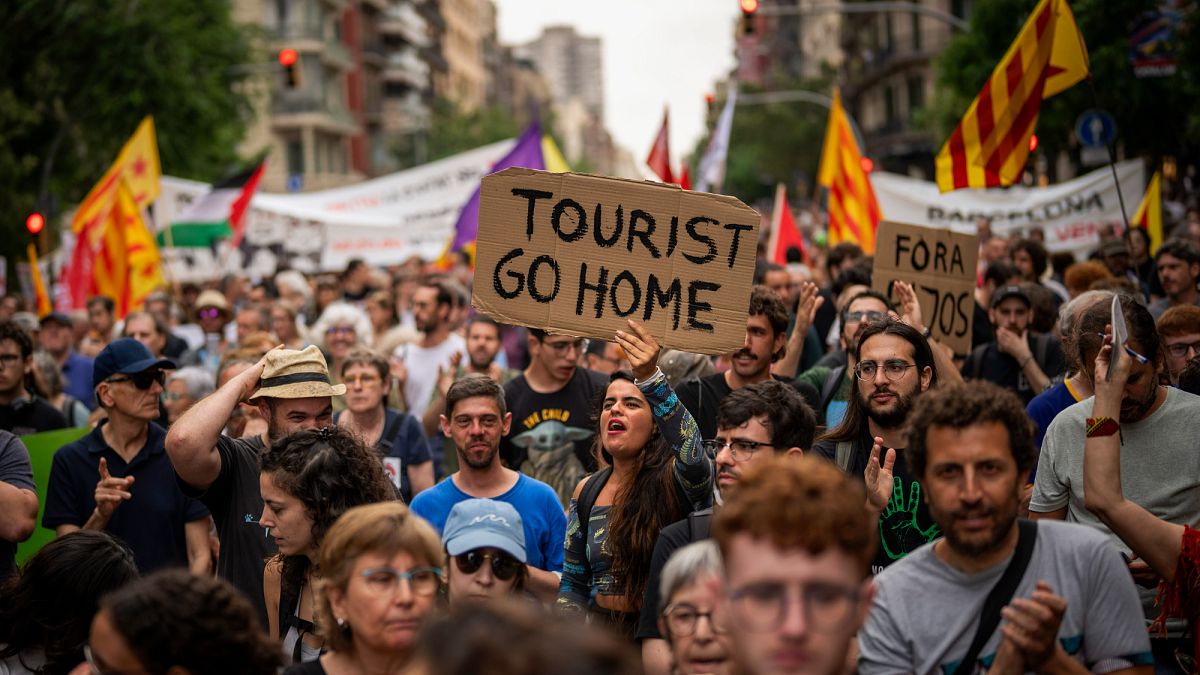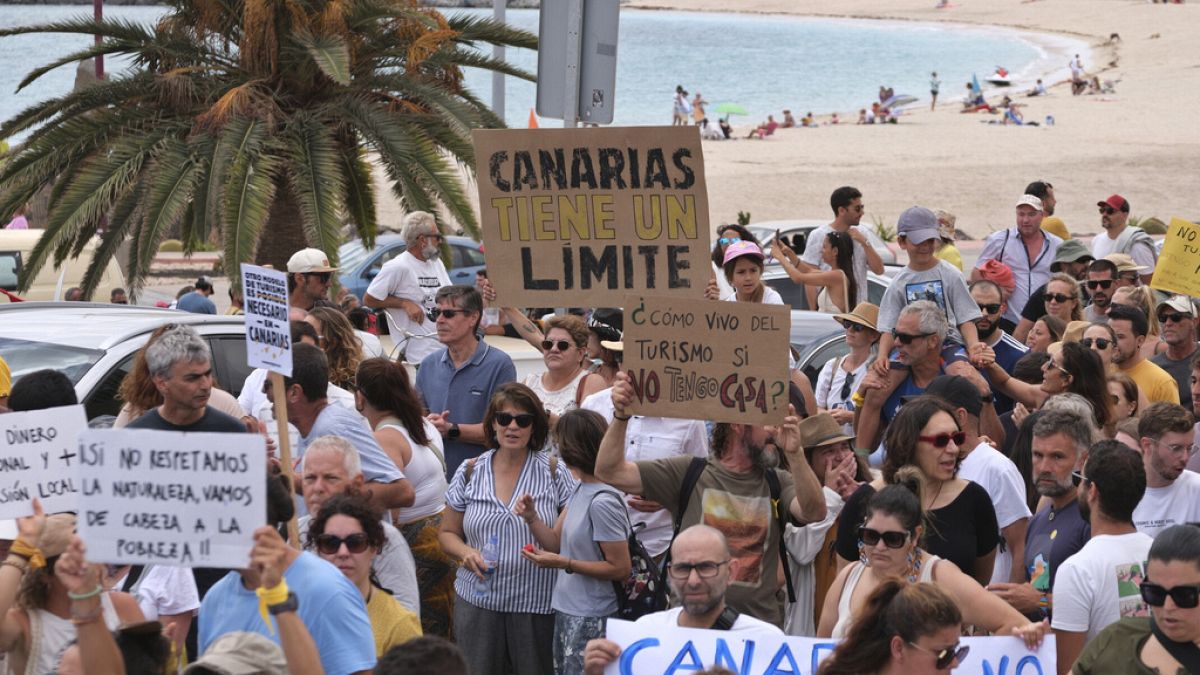Protesters gather in Brussels to denounce gender violence

Around a hundred women demonstrated in Brussels on Friday to denounce gender violence on the eve of the International Day for the Elimination of Violence Against Women on 25 November.
The women wore red gloves and held up banners with QR codes, which hid “intimate” messages from the women who carried them. The project was spearheaded by the renowned Spanish artist Alicia Framis.
“I wanted to demonstrate in keeping with the feminine, which is silence, retrospection, elegance […] think that the main issue for women throughout Europe is violence, but not only physical violence but also verbal violence,” the artist explained.
Framis organised the “Secret Strike” in collaboration with the Spanish Embassy in Brussels.
This ‘performance’ brought together a group of volunteers who for ten minutes remained motionless to denounce the physical and sexual violence that affects one in three women in the world, according to the United Nations.
And it took place as European equality ministers held an informal meeting this Friday in Pamplona, Spain. The informal talks between EU member states were meant to push through the first European directive against violence against women.
Framis said that they decided to organise this “Secret Strike” in front of the European Council building to denounce the blockage of legislation that would define rape as sex without consent in the bloc’s 27 countries
The artist warned that “instead of making progress, many countries are thinking of cutting back” on women’s rights.
The European Commission, the EU’s executive arm, proposed legislation last year to make consent-based rape laws consistent across the bloc, and to introduce a common set of penalties.
While other details of the directive, which include a proposal for the criminalisation of female genital mutilation and cyberbullying, seem to gather a consensus among the 27 member countries, the definition of rape based on the lack of consent is deeply divisive.
According to Human Rights Watch, only 13 EU member states use consent-based definitions to criminalise rape.
Many others still require the use of force, or threat, to carry out punishment. France, for instance, considers that rape can be considered to have occurred when “an act of sexual penetration or an oral-genital act is committed on a person, with violence, coercion, threat or surprise.”
Negotiations between the European Parliament, member states and the European Commission are at a standstill due to the reluctance of some countries in the EU to include the crime of rape in the final text, such as France and Germany.
Source: Euro News















